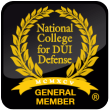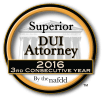
It’s difficult to put ourselves in a situation where this would put us, or others, in danger because so far, you haven’t had any trouble. Being able to multitask, answering a text, changing the music, and navigate down a road shows you are a good driver, right?
In a recent article in Fox News, we read more about the psychology of distracted driving and how a no-tolerance policy on texting and driving might not actually be doing the trick. According to a recent survey, 90 percent of drivers acknowledge the dangers of texting and driving, but that doesn’t necessarily stop them from doing it. And almost three-fourths of survey responders disclosed that they’ve looked at their phones while operating a vehicle.
We’ve seen the #ItCanWait campaigns and watched the commercials; we know it is illegal. In Washington State, all drivers are prohibited from using handheld devices while operating a vehicle. But it is almost too easy to come up with excuses for using or looking at your phone while driving. We’ve all heard them (or used them). “My mom texted me.” “I got lost and needed to find directions.” “I couldn’t wait to respond.”
According to Dr. Greenfield, the conductor of the study, it is more than mere excuses that allow us to text and drive. It is addiction that drives our ability to participate in this hazardous conduct, despite the statistics and laws. We tell ourselves that if we send that one text that one time it will not be dangerous, despite the knowledge that it actually is. It’s just one text. It’s just one glance.
It’s just one glance, but that one glance could’ve been involved in the 26 percent of car accidents caused by distracted driving in 2012.
Dr. Greenfield’s psychological explanation about texting and driving could also apply to other dangerous driving habits we frequently participate in. Negligent driving practices, such as drinking alcohol, using drugs, and speeding, happen under the same premise as texting and driving. Dopamine, what the Huffington Post calls the “digital drug”, is a neurochemical giving us pleasure whenever we experience positive feedback. And we receive this positive feedback each and every time we get away with these negligent driving behaviors.
We tell ourselves that it’s all right to drive 20 miles over the speed limit because we are late, not to mention that all the cars around us are doing it. We allow ourselves one drink too many, telling ourselves that there’s no way we would be the ones to be caught drinking and driving. We talk ourselves up so much so we believe there’s no chance we could become the next addition to the steeping statistic. And every time we get away with it, we keep telling ourselves it is okay.
Unfortunately, the risks of these behaviors can not only lead to injury, death, and car repairs, but it can also lead to legal action. In Washington State, there are two different degrees of negligent driving. Negligent driving in the first degree is a criminal misdemeanor offense. While, negligent driving in the second degree is only a civil traffic infraction.In addition, texting and driving, is also only a civil traffic infraction.
Legal Consequences of Negligent Driving
Both degrees of negligent driving require the State or City to prove that the driver drove their vehicle in a negligent manner that endangered people or property, or could have potentially put people or property endanger. The main distinction between the two is that negligent driving in the first degree requires the State or City to also show that the driver was also exhibiting the effects of having consumed alcohol, marijuana or any other drug that renders the driver to appear intoxicated.
Negligent driving in either degree, generally, will not lead to a license suspension. However, other consequences may involve fines, in the criminal negligent driving cases jail time, and in both cases drastic increases in car insurance premiums.
Legal Consequences of Texting and Driving
In Washington (since 2008), if you read, send, or write a text message while driving a car, you could be given a traffic infraction. According to Washington law, this includes when you are at a stoplight, along with inputting numbers or a contact name to make a phone call. However, you can always pull over and use your phone in a safe area and not be given a traffic infraction. The only time that texting while driving is allowed is when you are alerting authorities of an emergency or reporting illegal activity.
If you get a traffic infraction because of texting and driving, it will not go on your record or raise your insurance costs. However, if you are a commercial driver driving your commercial vehicle at the time, it will become part of your driving record and is considered a major – moving offense.
At the Law Offices of Barbara A. Bowden, we help individuals contest traffic tickets and fight traffic charges, including DUI, negligent driving, and more. While we do help those who have run into driving-related trouble, we too try to fight the urge to use our devices while operating our own vehicles. We’re constantly busy, just like you, and it’s extremely difficult to unplug while driving about our day, but we too try our best.
We’re all human, though, and we all make mistakes. And one mistake shouldn’t throw your life and finances for a spin. As DUI and traffic ticket attorneys, we work with people who’ve made mistakes and need help, and we do everything we can to give it to them.
We help people, 24/7. As your advocate and your fighter, the attorneys at the Law Offices of Barbara A. Bowden want to be by your side and help you through this trying time. Let’s find a solution and help you sort through your traffic-related mistake today.













